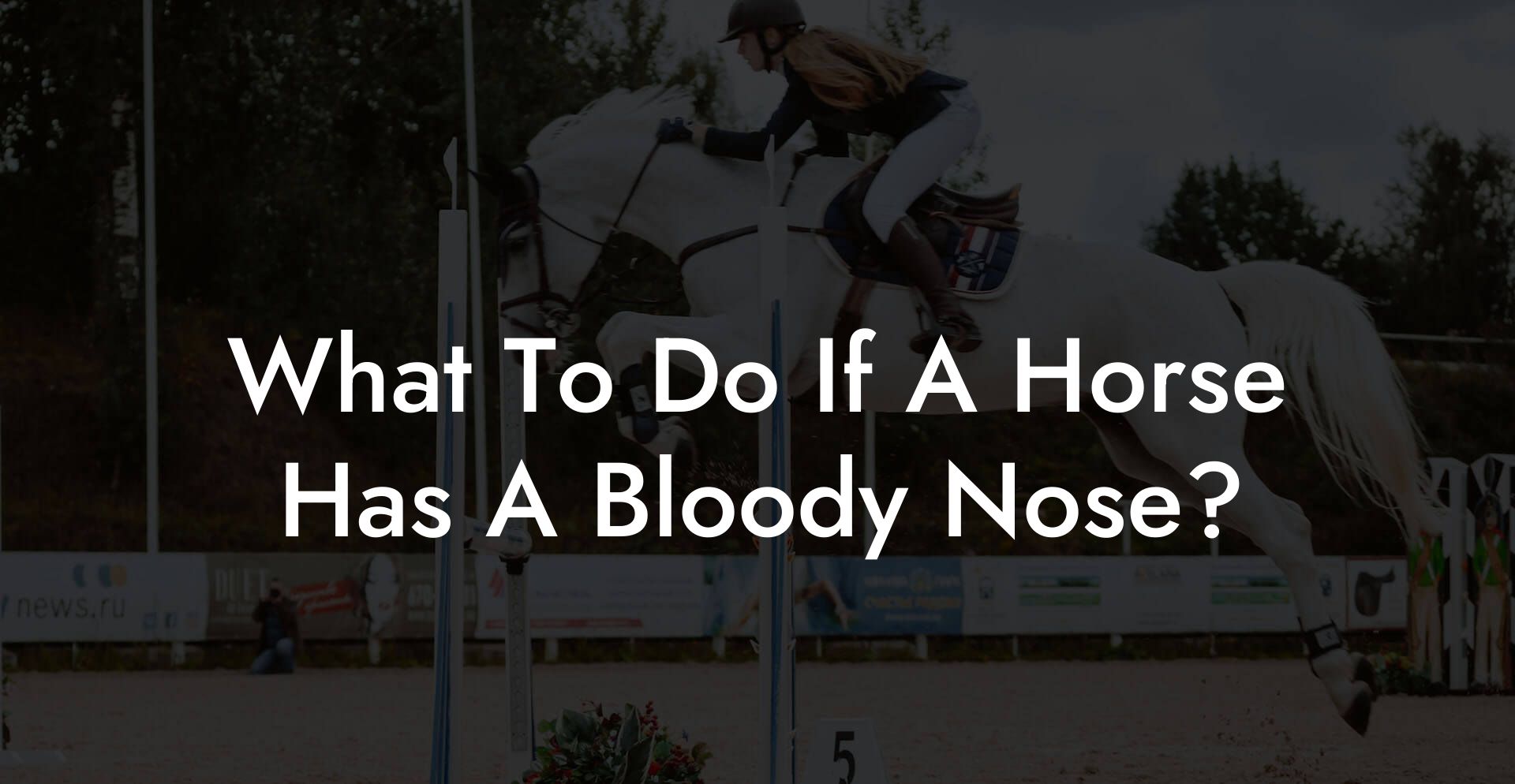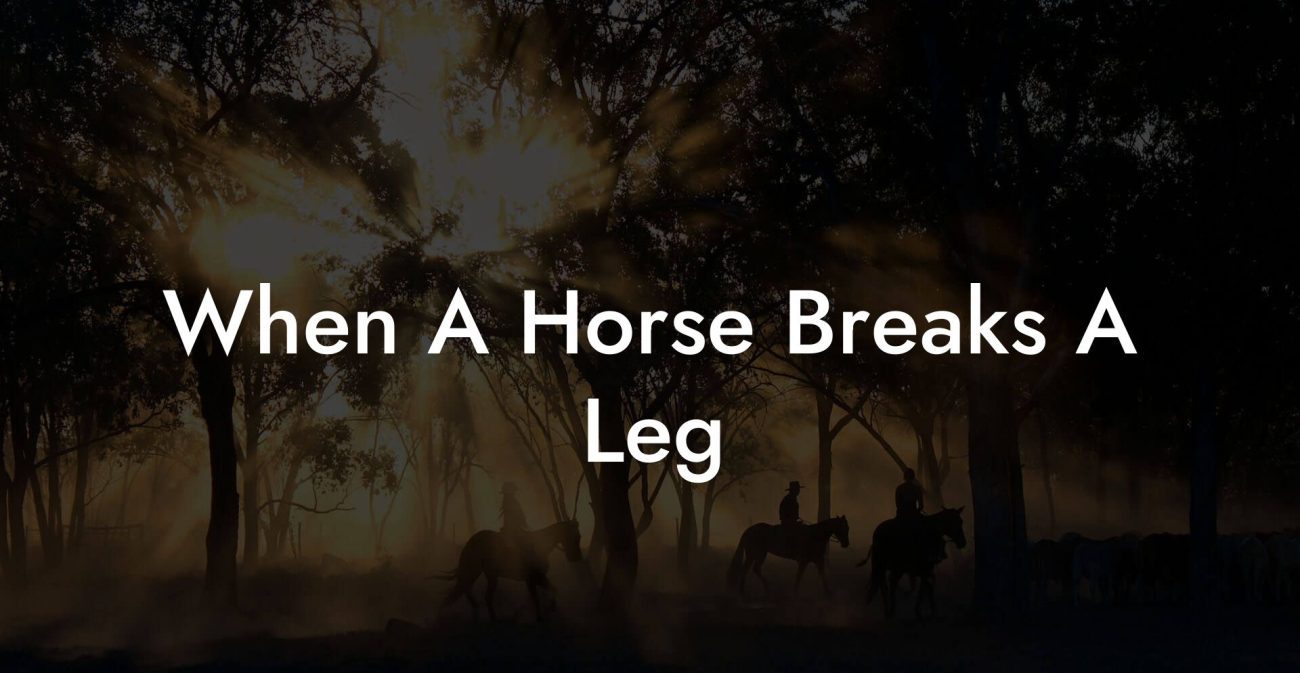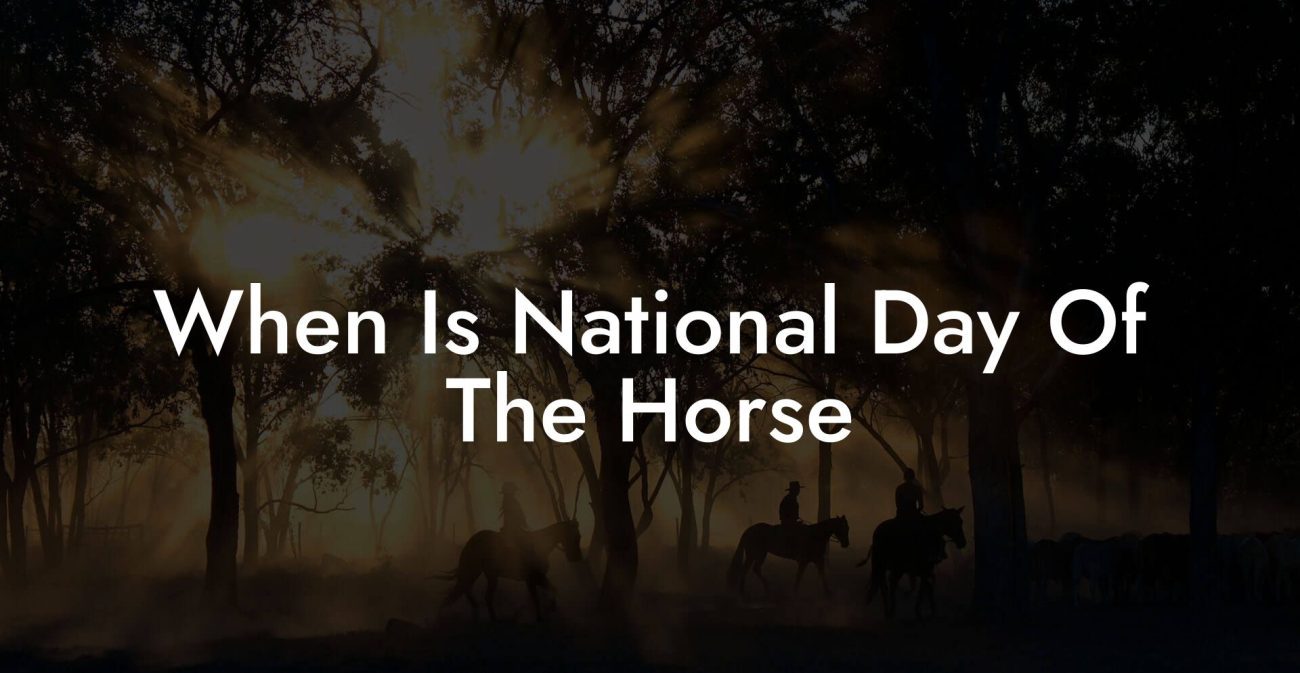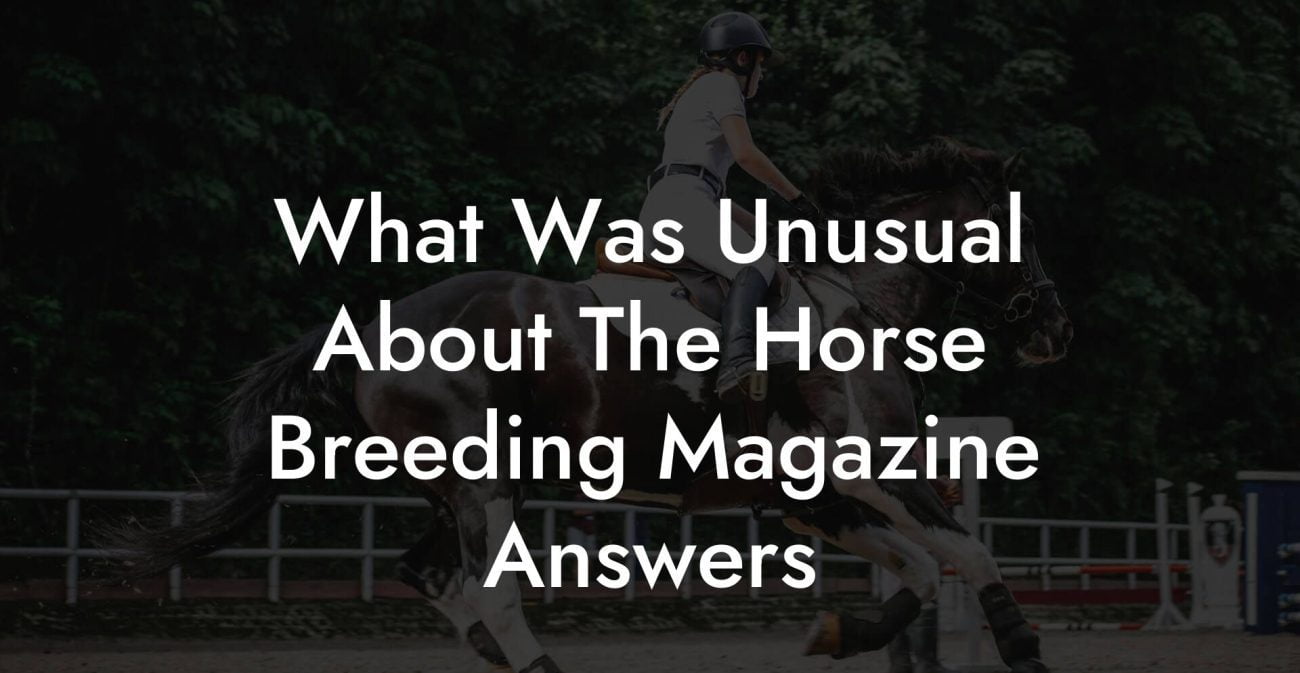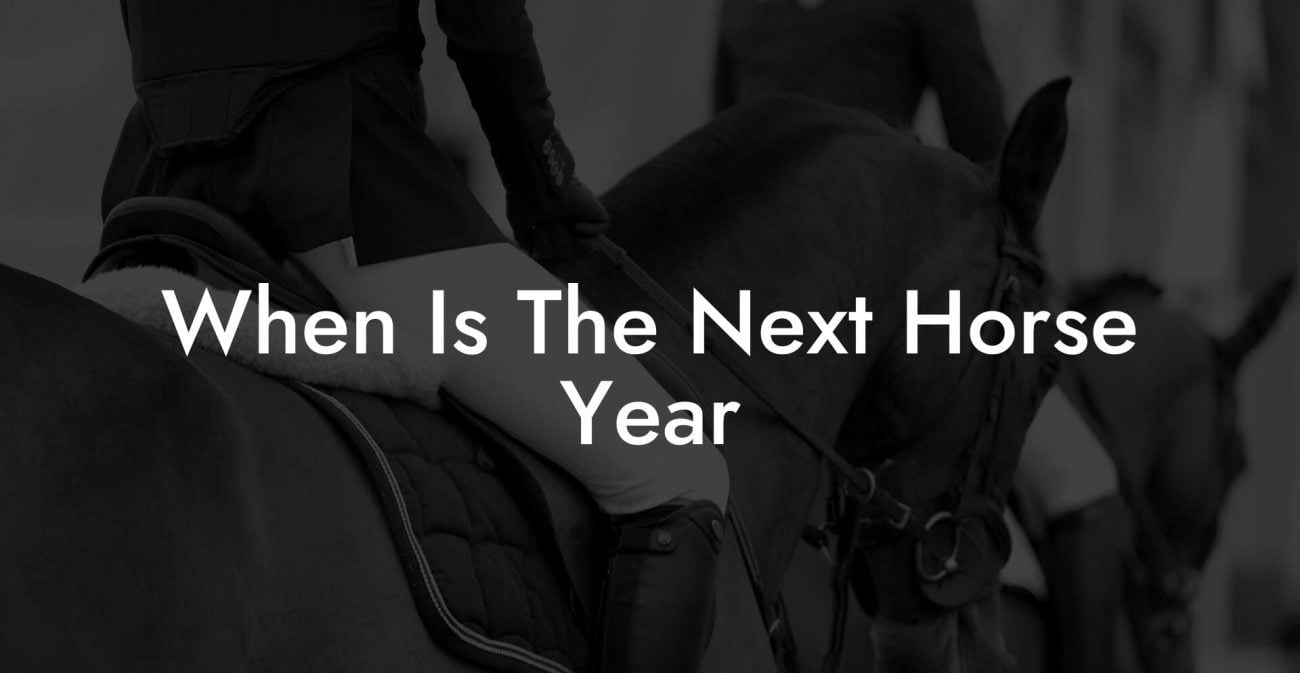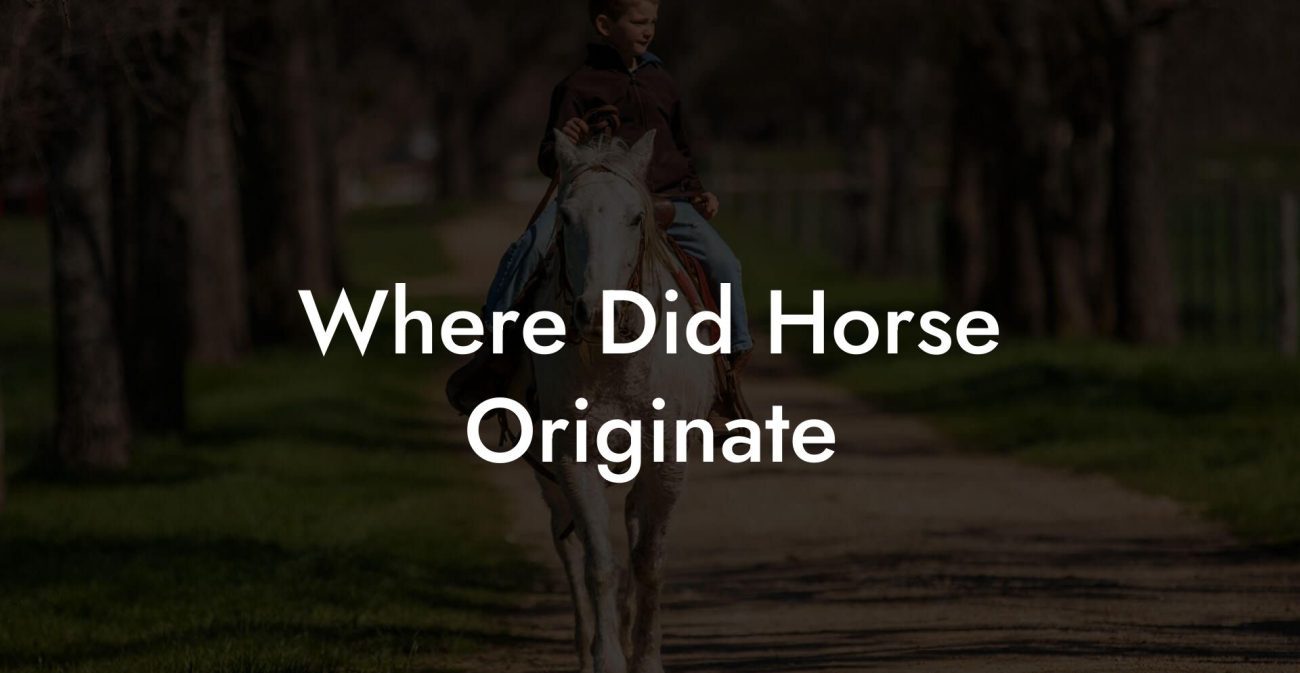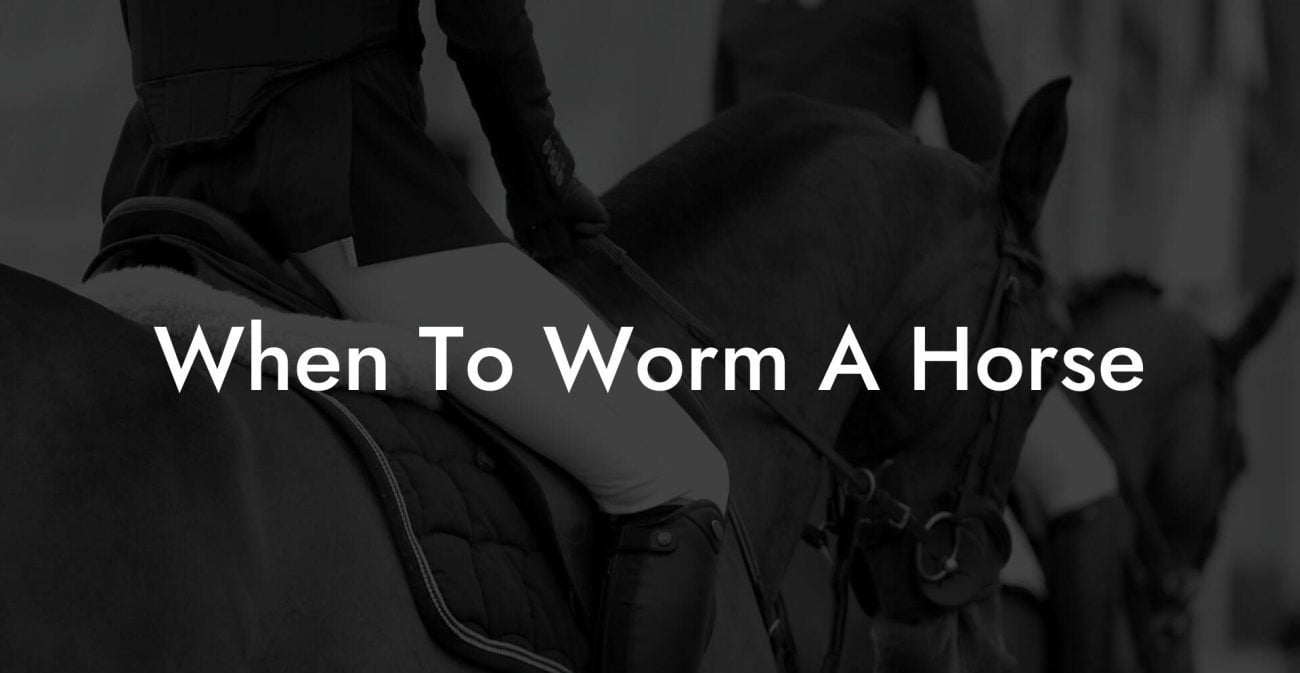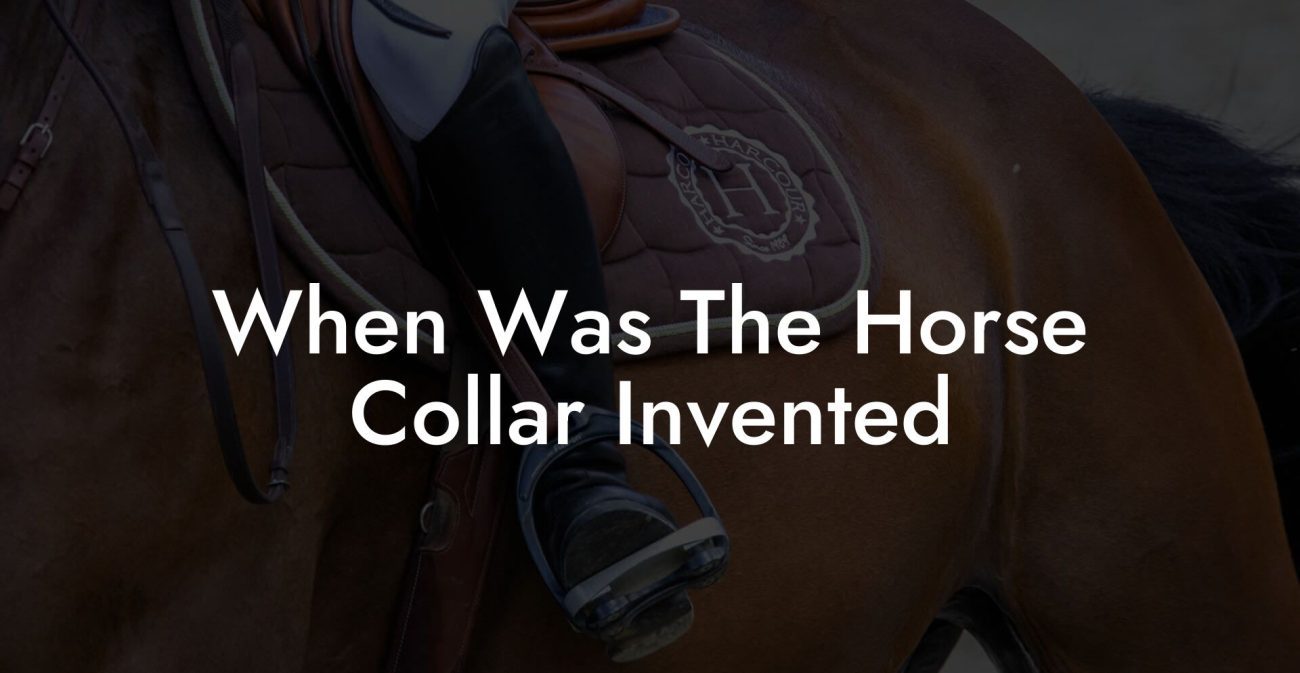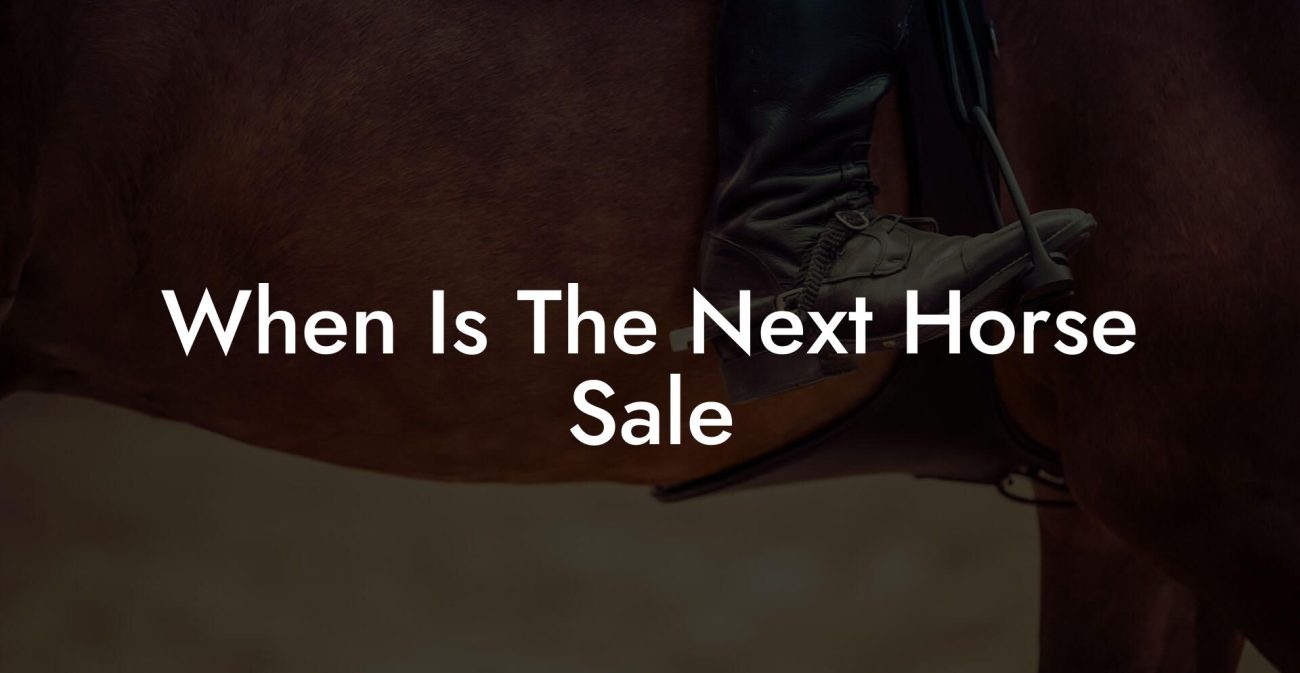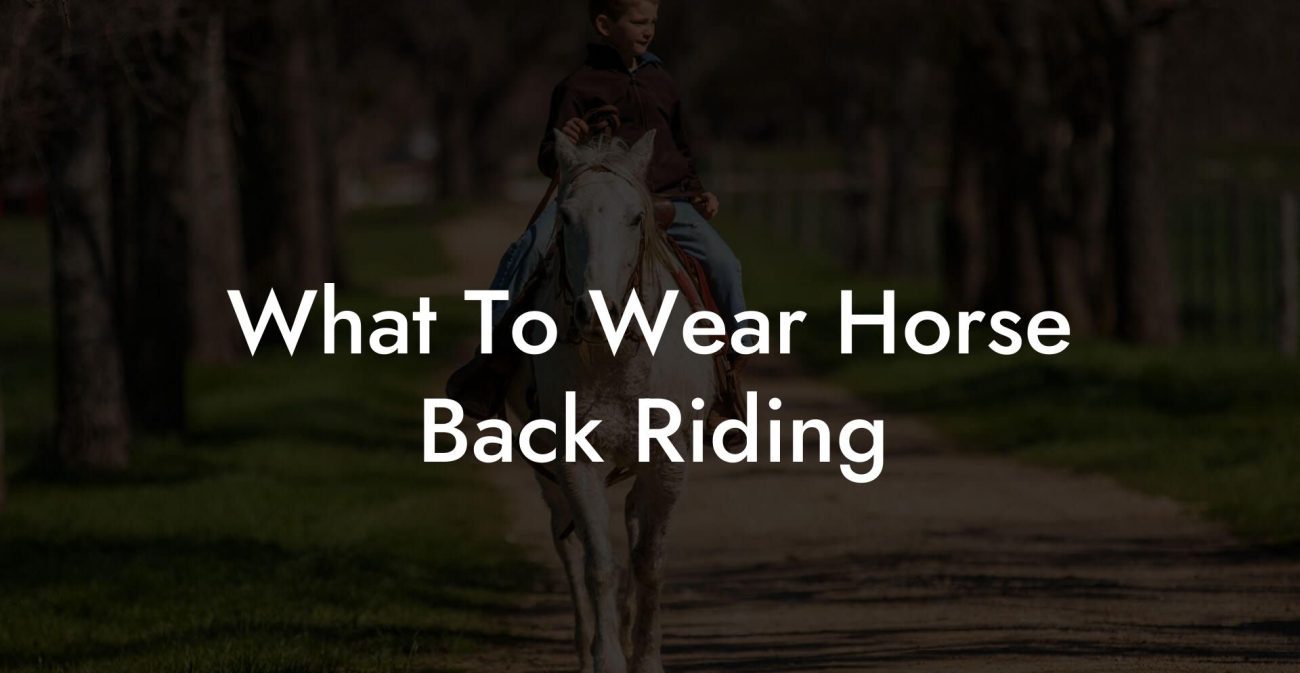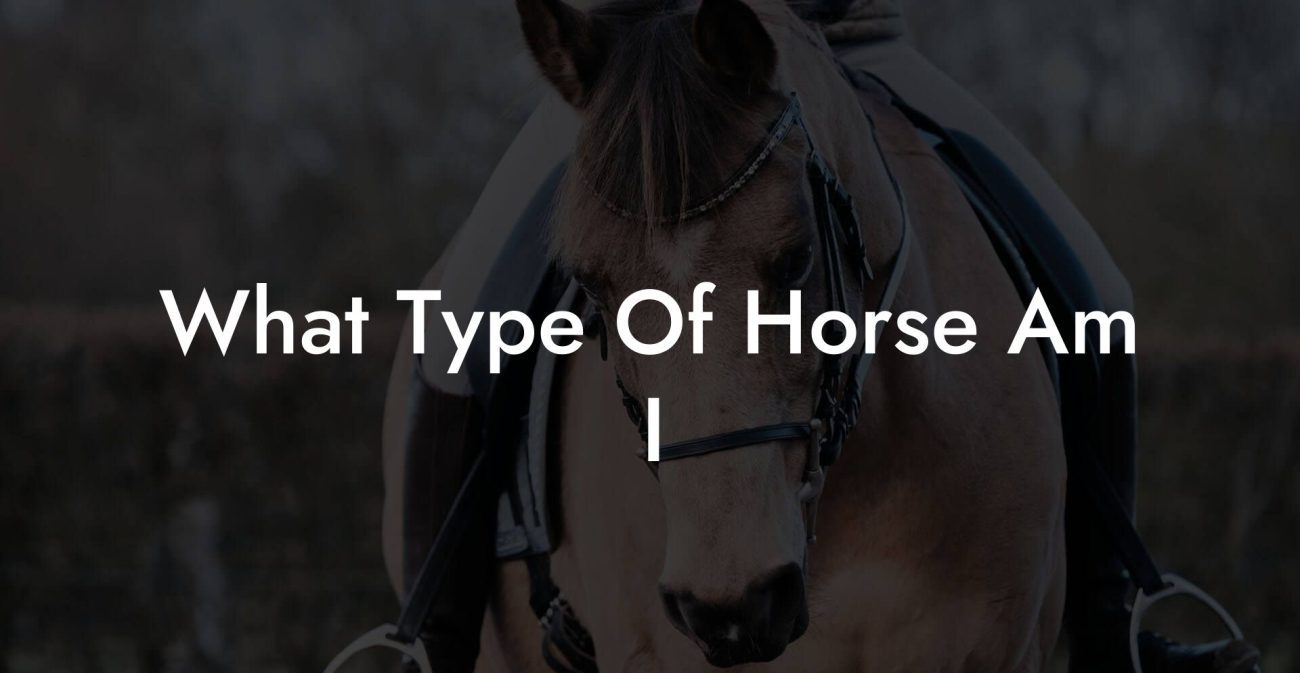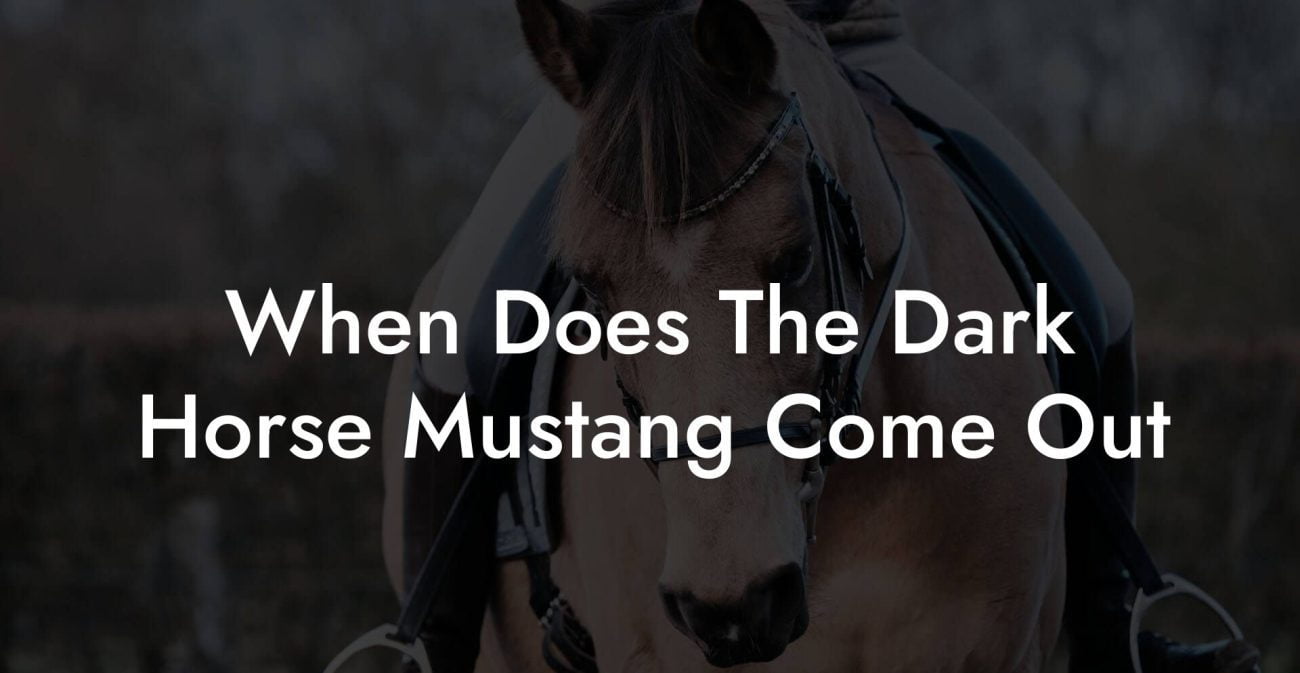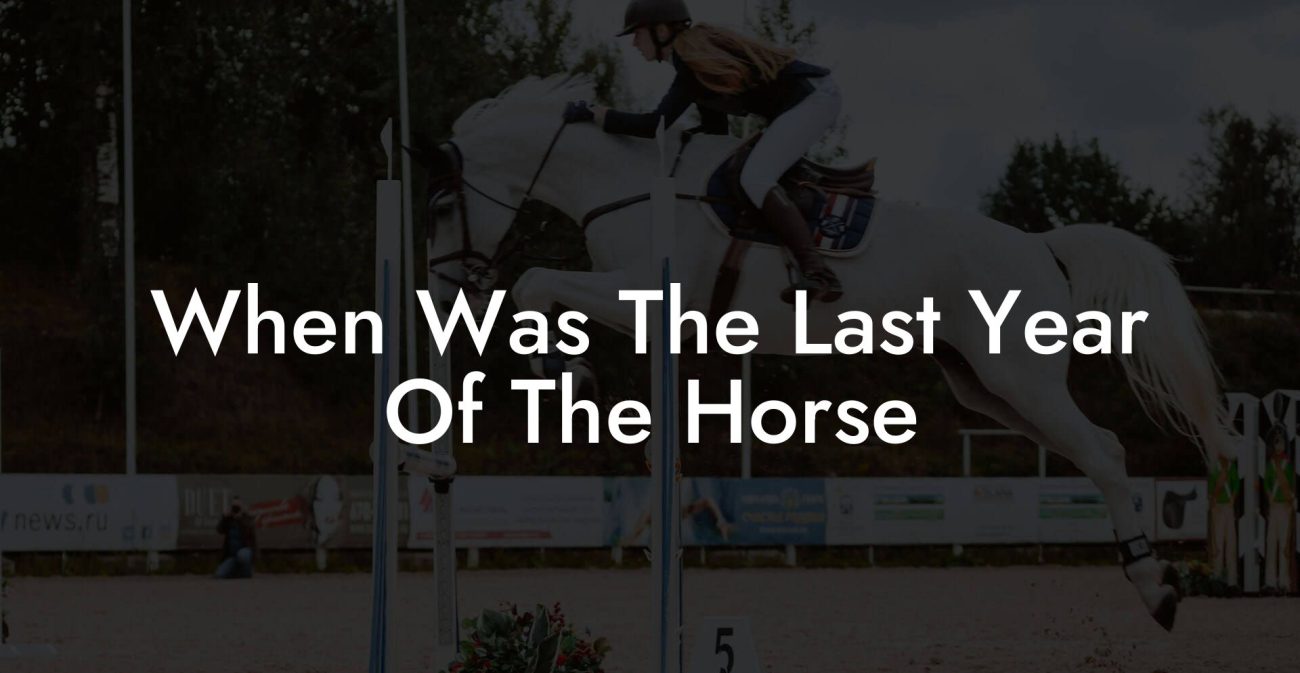When your horse starts bleeding from the nose, it’s easy to feel like you’ve stepped into a scene from an action movie, only instead of a superhero landing, you’re staring at equine chaos. But fret not, because handling a horse’s bloody nose is a challenge that, with the right mix of practical know-how, a dash of humor, and a solid dose of common sense, you can totally navigate. In this comprehensive guide, we’ll explore what to do when a horse has a bloody nose, covering everything from immediate first aid and diagnostic tips to long-term prevention strategies and holistic care options. Whether you’re a seasoned horse owner with an eye for detail or just starting your journey into equine care, buckle up and get ready for a wild ride through the ins-and-outs of equine emergencies.
Quick Links to Useful Sections
- Understanding Equine health: When a Horse Has a Bloody Nose
- Immediate First Aid: Steps to Take if a Horse Has a Bloody Nose
- Step 1: Assess the Severity
- Step 2: Secure Your Environment
- Step 3: Apply Basic First Aid
- Step 4: Monitor Vital Signs
- Step 5: Prepare for Veterinary Consultation
- Diagnostic and Veterinary Insights: When to Call a Vet
- When the Bleeding Persists
- When Accompanied by Other Symptoms
- Previous Incidents or Known Health Issues
- Common Causes of Bloody Noses in Horses
- Trauma
- Foreign Objects
- Infections and Inflammation
- Environmental Allergies
- Underlying Health Conditions
- Prevention Strategies: Keeping Your Horse’s Nose Bleed-Free
- Regular Veterinary Check-ups
- Environmental Safety and Management
- Proper nutrition and Hydration
- Monitor for Allergies and Infections
- Advanced Treatment Options and Equine Surgery
- Holistic and Natural Remedies in Equine Care
- Herbal Supplements
- Homeopathy
- Acupuncture and Acupressure
- Equine Case Studies: Real-Life Experiences in Tackling Nasal Bleeds
- Case Study 1: A Minor Injury That Turned Serious
- Case Study 2: The Challenge of Recurrent Epistaxis
- Case Study 3: A Holistic Rescue
- Resources and Community Support: Your Next Steps
- Online Forums and Social Media Groups
- Workshops and Seminars
- Local Veterinary Networks
- Equine Nutrition and Fitness Experts
- Embracing Proactive Equine Health
- Equine Bloody Nose FAQs: Your Questions Answered
- Your Next Gallop: Empowering Proactive Equine Care
Understanding Equine health: When a Horse Has a Bloody Nose
Horses are majestic creatures known for their strength, agility, and sometimes even their unpredictable antics. A bloody nose in a horse is not only alarming but also an important signal that something might be amiss with your equine friend’s health. While it might be tempting to panic, the first step is to stay calm and assess the situation. A bloody nose, known in veterinary terms as epistaxis, can result from a variety of causes, from minor injuries sustained during play or roughhousing with other horses, to more serious underlying conditions that require professional care.
Equine health is a delicate balance of diet, environment, and overall management. A bloody nose can disrupt that balance and is a red flag for potential issues in respiratory health, trauma, or even systemic problems. Recognizing the signs early and knowing the proper steps to take not only ensures your horse receives the best care but also minimizes stress for both you and your animal. Throughout this guide, we’ll dig deep into the reasons behind a bloody nose, practical first aid measures, when to involve a veterinarian, and long-term strategies for prevention and holistic care.
Keywords relevant to this discussion include “equine health,” “bloody nose in horses,” “veterinary care,” “first aid for horses,” and “equine emergency.” By understanding these concepts, you empower yourself to be proactive instead of reactive, ensuring that your horse’s well-being is always at the forefront of your priorities.
Immediate First Aid: Steps to Take if a Horse Has a Bloody Nose
When your horse starts bleeding from the nose, your first instinct might be to either panic or run for help. However, having a clear, methodical approach can make all the difference. The initial steps are about ensuring the safety of your horse and stabilizing the situation until professional help is available. Here’s a step-by-step guide to managing a horse’s bloody nose in the moment:
Step 1: Assess the Severity
Take a moment to evaluate how much blood is coming out. Is it a slow trickle or a fast flow? A minor bleed from a small cut might not be cause for alarm, while a heavy, continuous bleed could signal trauma or a more serious internal issue.
Step 2: Secure Your Environment
Make sure your horse is in a safe, quiet area away from other animals or distractions. This prevents additional stress and accidental injuries. If your horse is in a stall or pasture, try to isolate them so you can concentrate on addressing the issue.
Step 3: Apply Basic First Aid
If you determine the bleeding is minor and appears to stem from a superficial wound, gently clean around the affected area with a clean towel or soft cloth. Use saline solution if available, as it helps cleanse the wound and minimizes the risk of further irritation.
Avoid applying too much pressure directly to the nostrils, as this may interfere with normal breathing. Instead, focus on monitoring the bleed and keeping your horse calm. Speak soothingly, pet them lightly, and try to reduce any external stress factors.
Step 4: Monitor Vital Signs
Keep an eye on your horse’s overall behavior. Check for signs of distress such as rapid breathing, lethargy, or abnormal behavior. A sudden change in demeanor can indicate that the bleed is not as minor as it appears.
Step 5: Prepare for Veterinary Consultation
Even if the bleeding seems to slow down or stop, it’s crucial to consult with a veterinarian as soon as possible. Keep details handy about how long the bleeding lasted, the amount of blood lost, and any observed trauma. This information will be vital for an accurate diagnosis.
Practical first aid for horses requires a mix of immediate responsiveness and calm analysis. Incorporate these procedures into your emergency kit and routine check-ups to stay ahead of potential issues, ensuring that a bloody nose remains an isolated incident rather than a recurring problem.
Diagnostic and Veterinary Insights: When to Call a Vet
While first aid steps help manage the immediate crisis, professional diagnosis is paramount to uncovering the root cause of your horse’s bloody nose. Veterinary professionals are trained to evaluate both obvious and subtle signs that indicate underlying conditions. So, when should you call the vet?
When the Bleeding Persists
If the bleeding continues beyond a few minutes even after basic first aid, it’s time to contact your equine veterinarian. Prolonged bleeding might hint at deeper issues such as vascular abnormalities, infections, or severe trauma.
When Accompanied by Other Symptoms
Watch out for signs like difficulty breathing, swelling around the muzzle, or abnormal nasal discharge. These secondary symptoms could provide clues to more serious conditions such as respiratory infections, sinusitis, or even some types of tumors.
Previous Incidents or Known Health Issues
If your horse has a history of bleeding episodes or underlying health concerns, err on the side of caution and get a professional evaluation immediately. Chronic epistaxis can be a sign of systemic disorders including clotting problems, infections, or even complications from dental procedures.
Veterinarians will likely perform a physical examination, ask detailed questions about the circumstances surrounding the bleed, and may recommend further diagnostic tests such as blood work, endoscopy, or even imaging studies. These diagnostic tools provide a comprehensive view of your horse’s health and help in formulating a targeted treatment plan.
While the idea of visiting a vet might not be as appealing as a quick DIY fix, remember that professionals bring the experience, equipment, and expertise needed to confirm that nothing more serious is at play. In the realm of equine health, prevention and early detection are your best allies, so keep that vet’s number handy!
Common Causes of Bloody Noses in Horses
Understanding why your horse might develop a bloody nose is key to both effective treatment and long-term prevention. Several factors can come into play, and while not all require emergency interventions, knowing the common culprits can help you act swiftly and confidently.
Trauma
One of the most frequent causes of a horse’s bloody nose is trauma. Whether your horse got bumped during play, accidentally collided with a fence, or fell during training, physical injuries are common suspects. Equine living is full of accidents, from minor scrapes to more serious impacts, and the nose, being an exposed area, is particularly vulnerable.
Foreign Objects
It’s not unusual for environmental debris, like twigs, dust, or even insects, to irritate or injure the sensitive mucous membranes in a horse’s nostrils. Sometimes, a sudden sneeze induced by such irritants can be forceful enough to cause a minor bleed.
Infections and Inflammation
Respiratory infections, sinusitis, or other inflammatory conditions can cause blood vessels to become fragile and prone to bleeding. Viruses or bacteria that target the equine respiratory system can sometimes trigger recurring episodes of epistaxis, especially in horses with compromised immune systems.
Environmental Allergies
Horses can be as allergic as the rest of us to pollen, dust mites, or other airborne allergens. When these allergens attack, the resulting inflammation can damage the delicate linings of the nostrils and trigger a bleed.
Underlying Health Conditions
Sometimes, a bloody nose isn’t just a standalone symptom but a sign of a more systemic issue. Blood clotting disorders, hypertension, or certain cancers can manifest in unexpected ways, including nasal bleeding. Horses with known health issues may be particularly susceptible, making ongoing monitoring and regular vet check-ups essential.
By familiarizing yourself with these common causes, you’ll be better equipped to determine whether a bleeding episode is simply a one-off event triggered by a minor injury or something that warrants further investigation. Remember, knowledge is power, especially when it comes to the well-being of your equine companion.
Prevention Strategies: Keeping Your Horse’s Nose Bleed-Free
Prevention is always better than cure, and this is especially true when it comes to equine health. A bloody nose can often be prevented through careful management, routine checks, and a proactive approach to your horse’s environment and daily activities.
Regular Veterinary Check-ups
Routine veterinary examinations aren’t just for addressing problems when they arise, they’re also a key component of prevention. Scheduled check-ups help monitor your horse’s overall health, identify potential issues before they escalate, and ensure vaccinations and parasite controls are up to date.
Environmental Safety and Management
Keeping your pasture, stall, and arena free from hazards is essential. Remove sharp objects, ensure good air quality, and manage dust levels through proper ventilation and cleaning. A safe environment minimizes the chances of trauma or irritation that could lead to a bloody nose.
Proper nutrition and Hydration
A balanced diet and consistent hydration help maintain the integrity of mucous membranes and overall equine health. Incorporate plenty of fresh water, high-quality hay, and nutrient-dense feed into your horse’s daily regimen to promote tissue repair and reduce inflammation.
Monitor for Allergies and Infections
Keep an eye out for seasonal allergies or breathing difficulties that could signal the onset of infections. Early treatment of respiratory issues means fewer complications and a lower chance of symptoms like nasal bleeding. Consider consulting your veterinarian about allergy management strategies if your horse is particularly sensitive.
These prevention strategies are all about creating an environment where your horse’s health can flourish. Like tuning up a classic car, regular maintenance and attention to detail keep everything running smoothly, and that includes your horse’s nose!
Advanced Treatment Options and Equine Surgery
In rarer cases where first aid and routine veterinary care aren’t enough to address a horse’s bloody nose, advanced treatment options, including surgery, might be necessary. Although rarely required, these procedures are designed to tackle more severe or persistent cases of bleeding.
Advanced treatment typically begins with comprehensive diagnostic tests. Blood panels, nasal endoscopies, and even CT scans can help your veterinarian pinpoint the source of the bleeding. For conditions such as vascular malformations, severe infections, or neoplasms, targeted treatments like laser therapy, cauterization, or surgical intervention may be recommended.
Equine surgery, while intimidating at first, is performed with an utmost dedication to your horse’s recovery and quality of life. Surgical intervention is usually considered a last resort, reserved for those cases that do not respond to conservative treatment. Post-surgery, a carefully managed rehabilitation program, combining rest, medication, and controlled physical therapy, is essential to restore your horse’s health.
It’s important to emphasize that surgical procedures are rarely needed for minor cases of nasal bleeding, but when they are, the goal is to provide your horse with a lasting solution that prevents recurrence. Working closely with an experienced equine surgeon and following all post-operative care instructions can mean the difference between a full recovery and ongoing complications.
Holistic and Natural Remedies in Equine Care
Beyond conventional medicine, many horse owners are turning to holistic and natural remedies to support their equine companions through recovery from a bloody nose. These remedies work to soothe inflammation, boost the immune system, and promote overall well-being.
Herbal Supplements
Herbs like chamomile, calendula, and echinacea have been traditionally used in managing inflammation and speeding up tissue repair. When used appropriately and under the guidance of a veterinarian or an equine nutritionist, these natural supplements can help calm irritated tissues and support quicker recovery.
Homeopathy
Some horse owners explore homeopathic remedies as part of a broader integrative approach. While the scientific support for homeopathy is mixed, anecdotal evidence and personal testimonies from fellow equine enthusiasts suggest that these remedies can provide additional comfort during stressful episodes.
Acupuncture and Acupressure
Acupuncture isn’t just for humans, many horses find relief from various conditions through this time-tested technique. By applying fine needles to specific energy points, acupuncture helps stimulate blood flow and reduce inflammation. Acupressure, which relies on manual pressure without needles, can also be integrated into your horse’s care routine.
These holistic methods are best used in conjunction with conventional treatments. They provide additional layers of comfort and support for your horse and, importantly, help maintain overall balance and well-being.
Equine Case Studies: Real-Life Experiences in Tackling Nasal Bleeds
Sometimes the best way to understand the multifaceted nature of equine nasal bleeds is to hear real stories from the field. Here are a few case studies that shed light on both the challenges and successes that come with managing a horse’s bloody nose:
Case Study 1: A Minor Injury That Turned Serious
Bella, a spirited mare with a penchant for playful chases across the pasture, experienced what initially appeared to be a minor nosebleed after she tripped while playing. Her owner quickly applied basic first aid by cleaning the area and monitoring her closely. However, when the bleeding persisted longer than expected, they promptly called the vet. Diagnostic tests revealed that Bella had sustained a small laceration that was aggravated by an underlying respiratory infection. With a combination of targeted antibiotics and a carefully managed rest period, Bella made a full recovery, proving that prompt action and professional guidance can prevent a minor issue from turning into a major problem.
Case Study 2: The Challenge of Recurrent Epistaxis
Thunder, a robust stallion known for his competitive spirit, began having recurrent bloody noses that were initially dismissed as minor injuries. Over time, the episodes became more frequent, prompting his owner to dig deeper. After a comprehensive veterinary evaluation, it turned out that Thunder suffered from a mild clotting disorder that required ongoing management. With careful dietary adjustments, the incorporation of herbal supplements, and regular monitoring, Thunder’s condition stabilized. This case underscored the importance of not ignoring recurring symptoms and embracing a collaborative, long-term approach to equine care.
Case Study 3: A Holistic Rescue
Daisy, an older mare with a gentle disposition, had several episodes of nasal bleeding during allergy season. Conventional treatments provided temporary relief, but her owner decided to integrate holistic therapies into her regimen. By adding acupuncture sessions, homeopathic remedies, and nutritional tweaks aimed at reducing inflammation, Daisy’s nasal bleeding significantly decreased. This case is a testament to how blending modern veterinary medicine with natural therapies can yield impressive, lasting results.
These case studies illustrate that every horse is unique, and so too is every bleeding episode. Whether the cause is trauma, infection, or an underlying condition, a balanced approach that combines first aid, professional care, and holistic strategies can help your horse recover and thrive.
Resources and Community Support: Your Next Steps
Taking care of your horse goes beyond just managing emergencies, it’s about building a network of resources and a supportive community dedicated to equine health. Here are some additional steps and resources to explore:
Online Forums and Social Media Groups
Join online communities where horse owners share experiences, tips, and support. Knowledge exchange can be invaluable in understanding the intricacies of equine care, including how to handle emergencies like a bloody nose.
Workshops and Seminars
Many equine organizations and veterinary practices offer workshops on first aid, behavioral management, and holistic care. Attending these events not only boosts your confidence but also ensures you’re up-to-date with the latest in equine health practices.
Local Veterinary Networks
Forming a relationship with a local equine veterinarian can be a game-changer. They can provide personalized advice, emergency support, and even recommend equine specialists when needed.
Equine Nutrition and Fitness Experts
A well-rounded approach to equine care includes nutrition and fitness experts who can help tailor a diet and exercise program that minimizes risk factors associated with nasal bleeding.
By tapping into these resources and building relationships with professionals and fellow enthusiasts, you create an environment where your horse’s health can flourish. The equine community is known for its passion and solidarity, so never hesitate to lean on others when you need support.
Embracing Proactive Equine Health
A bloody nose in a horse might seem like a daunting ordeal, but with the right blend of immediate care, professional insight, prevention strategies, and community support, you’re well-equipped to handle it. Proactive equine health is about being prepared, informed, and responsive. Every minute you spend understanding the possible causes, taking careful first aid actions, and building relationships with equine health experts is an investment in your horse’s long-term well-being.
Remember, each episode of nasal bleeding is a signal, a way for your horse to communicate that something isn’t quite right. It’s a call to action for both immediate treatment and a structured plan for prevention and wellness. Embrace the challenge with a mix of humor, determination, and a commitment to learning. After all, every great horse owner knows that caring for these noble animals can sometimes be as unpredictable as a gallop in the storm.
From first aid basics to advanced holistic treatments, your journey toward mastering equine care is filled with opportunities to learn, grow, and share experiences with a vibrant community of like-minded enthusiasts. Keep your toolkit, both practical and intellectual, well-stocked, and let this guide be your reference whenever the unexpected happens.
With the power of knowledge and the support of dedicated professionals and peers, you’re not just reacting to emergencies, you’re actively building a safer, healthier future for your horse. So, take charge, trust your instincts, and remember that every well-handled challenge only makes you a better caretaker.
Equine Bloody Nose FAQs: Your Questions Answered
Below are some frequently asked questions about handling a horse with a bloody nose, along with detailed answers to demystify what can often feel like an overwhelming situation.
1. What are the most common causes of a bloody nose in horses?
A bloody nose in horses can be caused by trauma, foreign objects in the nostrils, infections, allergies, or even underlying health conditions such as clotting disorders. Environmental factors or even vigorous play can sometimes result in minor bleeding.
2. How do I perform first aid for a horse’s bloody nose?
Start by assessing the severity of the bleeding, secure your horse in a safe space, gently clean the area with a mild saline solution, monitor their behavior, and contact a veterinarian if the bleeding persists or is accompanied by other concerning symptoms.
3. When should I call an equine veterinarian?
If the bleeding continues for several minutes, is heavy, or if your horse shows additional signs of distress (such as difficulty breathing or swelling), it’s important to seek veterinary assistance right away.
4. Can environmental allergies cause nasal bleeding?
Yes, horses can develop allergies that lead to inflammation in the nasal passages. This inflammation can sometimes damage blood vessels and result in minor bleeds.
5. What advanced treatments might be necessary for severe cases?
In severe cases, diagnostic tests such as blood work, nasal endoscopy, or imaging may be needed. Advanced treatments can include laser therapy, cauterization, or surgery to address underlying issues that cause persistent bleeding.
6. Are there natural or holistic remedies for managing a horse’s nasal bleeding?
Many horse owners use herbal supplements, acupuncture, and homeopathic remedies in conjunction with conventional veterinary care. These holistic approaches can help reduce inflammation and promote faster healing when used appropriately.
7. How can I prevent future episodes of a bloody nose in my horse?
Regular veterinary check-ups, maintaining a clean and safe environment, ensuring proper nutrition and hydration, and monitoring for allergies or infections are key strategies to prevent nasal bleeding in horses.
8. Is it safe to administer first aid on my own?
Yes, for minor bleeds, basic first aid is safe. However, if you’re unsure or the bleed seems severe, contact a veterinarian immediately for professional guidance.
Your Next Gallop: Empowering Proactive Equine Care
In the unpredictability of equine life, every challenge, from a routine scratch to a concerning bloody nose, offers an opportunity for growth in knowledge and care. By embracing proactive strategies, you not only react to emergencies but also work to create a preventive plan that supports long-term equine health. This approach includes practical first aid, staying informed through regular veterinary consultations, and integrating holistic practices that cater to both the physical and emotional well-being of your horse.
As you continue on your journey of equine care, remember that every informed decision you make builds the foundation for a healthier environment for your horse. From mastering first aid techniques to joining equine communities and utilizing natural remedies, you’re actively contributing to a cycle of care that empowers both you and your beloved equine partner.
Stay curious, stay prepared, and let every experience, whether small or significant, be a stepping stone toward a more informed, proactive, and compassionate approach to equine health. Your horse’s well-being is a testament to your dedication, and every careful, thoughtful action you take ultimately makes them stronger, healthier, and ready to gallop forward into each new day.
Embrace the unexpected with a smile, and remember: even when a horse has a bloody nose, the journey to understanding and better care can be as rewarding as a peaceful ride at sunset. Here’s to turning every challenge into an opportunity to shine as a true equine hero!

